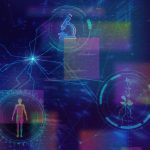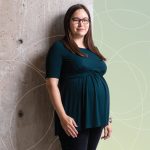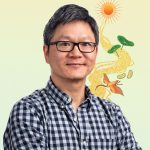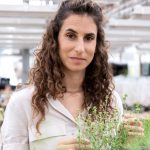Professor Christian Metallo has been recognized for his outstanding contributions to advancing science by being named the next holder of the Daniel and Martina Lewis Chair. Professor Geoffrey Wahl previously held this chair position.
Metallo, who is part of Salk’s Molecular and Cell Biology Laboratory, studies metabolism—how the constant breakdown of energy within cells works and, importantly, doesn’t work. By carefully studying healthy metabolic pathways, disease-causing pathways become clear, such as those that drive cancer progression and vision loss. His research advances the field of metabolism and provides a foundation for the development of metabolism-related therapeutics. Most recently, Metallo discovered that altered amino acid metabolism significantly contributes to peripheral neuropathy, a condition that is common in people with diabetes. The discovery opens new possibilities for identifying people most at risk for the condition, as well as potential treatment options.
Featured Stories
 Leading with Technology – Salk scientists develop new means of discoveryOur scientists continue to push technological limits to—among other things—store more excess atmospheric carbon in deeper plant roots, study pancreatic cancer more accurately, follow cellular activity in real time more clearly, and track all kinds of motion more easily.
Leading with Technology – Salk scientists develop new means of discoveryOur scientists continue to push technological limits to—among other things—store more excess atmospheric carbon in deeper plant roots, study pancreatic cancer more accurately, follow cellular activity in real time more clearly, and track all kinds of motion more easily. Dannielle Engle—Putting patients firstEngle, an assistant professor, has a deeply personal connection to pancreatic cancer that changed her career trajectory and made her want to focus on the disease. Inside Salk sat down with Engle to find out more about her dedication to finding better treatment options.
Dannielle Engle—Putting patients firstEngle, an assistant professor, has a deeply personal connection to pancreatic cancer that changed her career trajectory and made her want to focus on the disease. Inside Salk sat down with Engle to find out more about her dedication to finding better treatment options.
 Weiwei Fan—Life is energyFan, a staff scientist in Professor Ronald Evans’ lab, studies mitochondria because he feels drawn to understanding how these energy generators within our cells function and the natural variations that exist between individuals.
Weiwei Fan—Life is energyFan, a staff scientist in Professor Ronald Evans’ lab, studies mitochondria because he feels drawn to understanding how these energy generators within our cells function and the natural variations that exist between individuals. Natanella Illouz-Eliaz—Recipe for a plant biologist: tomatoes, failure, and perseveranceIllouz-Eliaz, a postdoctoral researcher in Professor Joseph Ecker’s lab, grew up in Israel near the border with Lebanon, where high-pitched sirens periodically drove her family into bomb shelters for safety. But her parents insisted that she get the best education possible.
Natanella Illouz-Eliaz—Recipe for a plant biologist: tomatoes, failure, and perseveranceIllouz-Eliaz, a postdoctoral researcher in Professor Joseph Ecker’s lab, grew up in Israel near the border with Lebanon, where high-pitched sirens periodically drove her family into bomb shelters for safety. But her parents insisted that she get the best education possible. Richard Heyman—From Salk to biotech and backHeyman, a scientist and entrepreneur who has founded numerous biotechnology companies, currently serves as vice chair of Salk’s Board of Trustees, but his Salk story actually began when he was a postdoctoral researcher in the lab of Professor Ronald Evans.
Richard Heyman—From Salk to biotech and backHeyman, a scientist and entrepreneur who has founded numerous biotechnology companies, currently serves as vice chair of Salk’s Board of Trustees, but his Salk story actually began when he was a postdoctoral researcher in the lab of Professor Ronald Evans.






















































